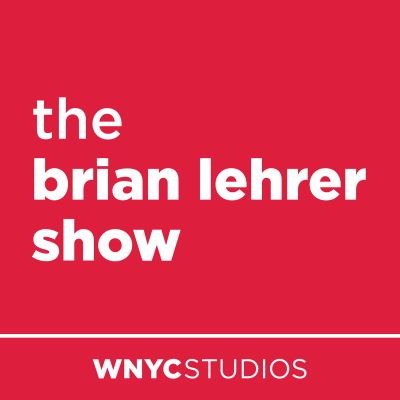Newsmakers meet New Yorkers as host Brian Lehrer and his guests take on the issues dominating conversation in New York and around the world. This daily program from WNYC Studios cuts through the usual talk radio punditry and brings a smart, humane approach to the day's events and what matters most in local and national politics, our own communities and our lives. WNYC Studios is a listener-supported producer of other leading podcasts including Radiolab, On the Media, Death, Sex & Money, Nancy, and many others.
https://www.wnyc.org/shows/bl
30 Issues | Week 2 Recap: Who Should Pay How Much in Taxes?
"Read my lips: no more taxes." Those iconic words were uttered by then-presidential candidate George H. W. Bush at the 1988 Republican National Convention. This week on #30Issues, we're asking: who should pay how much in taxes? But before we get into what your taxes might look like under a Trump presidency, it helps to understand where the federal income tax came from. Listen to the first 9 minutes of the segment below to hear a whirlwind tour of American politicians and the promises they've made (and broken) in the name of taxes. And while you're at it, go ahead and listen to the rest of that segment too. Joseph Thorndike, director of the Tax History Project at Tax Analysts, breaks down the history of taxes in a pretty palatable way. Here are the two main myths, as Joseph Thorndike sees them: Thorndike says: "The truth lies somewhere in the middle...At the end of the day, tax rates do matter to growth, but lots of other things matter more, so we shouldn't fetishize them."
@BrianLehrer Nice radio montage! FDR after Pearl Harbor: "sacrifice." W after 9/11: "Go shopping. Treat yourself."
— Rob Gunther (@RobGunther) April 21, 2016@BrianLehrer I thought this was going to be the most boring segment ever, but it's very interesting!
— Eileen (@brooklyneileen) April 21, 2016@brianlehrer House elections are largely auctions for access to change the tax code. How do we change that?
— Jack Jackson (@jack_jackson) April 21, 2016Great @jthorndike interview by @BrianLehrer: taxes increase when they must, not when they should (mostly).
— clintwallace (@clintwallace) April 21, 2016@BrianLehrer There should be a marginal tax for the top 1% around 70%-80% because everyone knows loopholes reduce it by half or more.
— edward brewington (@edbrewington3) April 22, 2016Just Stop and Think About This For a SecondTake the most extreme tax proposals by the presidential candidates. Donald Trump wants to slash taxes by about $11 billion. Bernie Sanders could increase taxes by $14 trillion. That's a $25 trillion swing that's at stake in this election cycle.
"If you go back through history, I don’t know if you’ll find many elections where there’s so many tax dollars at stake," Tony Nitti told Brian this week. Nitti is a partner at an accounting firm and contributor to Forbes.com on tax policy.
What Would Happen to Your Taxes Under President Trump?Brian decided to look at three income levels and compare how they would fare under each of the candidate's tax proposals.
He used the Tax Foundation's tax calculator to come up with these numbers.
And here's how he modeled it: for families earning $600,000/year (the entry point to "the one percent") or $6,000,000/year (the super duper "one percent"), he put in one bread-winner and 2 dependents.
For families earning $60,000/year (the average income of a dual-earning household in America), he listed 2 bread-winners and 2 dependents.
Here's how it shakes out:
And while you're looking at the visual above, listen to tax expert Tony Nitti compare and contrast each of their plans below:
The Forecast AheadCheck back in next week, when #30Issues looks at our healthcare system and how it stacks up against other countries!
